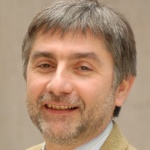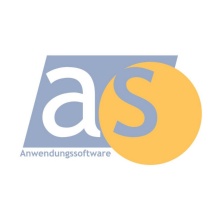Overview
The department Applications of Parallel and Distributed Systems has its "traditional" field of work in the complex areas of database and information systems. A multitude of system and application projects has been carried out, constantly exploring new subject areas. The emphasis of the department's research are the following:
In this research area we are determining how database management systems and their functionality can be used in open systems that do not comprise central administration components. The WWW (or the Intra-/Internet in general) might be seen as a typical example of such systems, but similar approaches including mobile access and processing facilities are also considered (e.g. OMG and OSF proposals). Evaluation of concepts is done by specific prototypes and related example applications like earth observations systems (EOS) or product data management (PDM).
New application areas with more demanding requirements or databases within open networks of information systems lead to a rapid increase of data volumes and query complexity. Well-known examples are the areas OLAP and data mining, profiling services or publish/subscribe services. The necessity to process large data sets very efficiently and to reduce response times requires parallel database technology. However, whenever possible, this should be transparent to the user. Parallelization steps which are considered in department projects are above all input/output, operators of the database engine, and measures to parallelize query execution plans.
Data warehousing and data mining is of vital importance to the integrated provision and analysis of data in enterprises. Research activities of the department AS in this field cover technology for data warehousing and data mining as well as va-rious application scenarios. On the technological level the focus lies on system architecture, middleware support, and the integration of operators into the database engine. In the application area we address the applicability of data mining in typical business environments and also investigate new fields of applications, which are not supported by data warehouses these days.
Modern information systems are characterized by a high degree of heterogeneity and distribution of software and hardware. This is especially true for most projects of the department "AS" (e.g. earth observation systems, geographical information systems, product data management systems, design control, etc). Moreover, these systems mostly consist of autonomous components (like e.g. database applications, TP monitors or user interaction). In order to cope with the complexity of such systems, it is necessary to model the entire system as a combination of separate components that interact via appropriate middleware. In this sense, the term middleware comprises file and database management systems, TP monitors, network services and e-mail systems, workflow systems as well as more complex frameworks like CORBA or DCOM. In this project area we will deal with the design and efficiency of such component-based systems. Particular emphasis will be put on efficient data access and data shipping techniques. The main goal is to design, implement and evaluate concepts for distributed (heterogeneous) data management supporting STEP-based applications, e.g. CAD tools or bill-of-material processing. Due to heterogeneity and distribution of components, modern concepts which support Intranet and Internet (like CORBA and Java) will be used and evaluated as well.
Federated information systems are mainly built on middleware technology, and especially on database middleware like federated database systems and database gateways. From a technological point of view it has to be decided on how much integration of the component systems is needed versus how much component autonomy is required. First experiences show that for different application areas also different degrees of integration as well as different federation techniques are adequate. By means of the various federation projects in our department, we hope that we can detail our investigations on the appropriate federation techniques.

Bernhard Mitschang
Prof. Dr.-Ing. habil.Head of Institute


